Potential Benefits Of Mineral Water For The Skin And Health
Learn the therapeutic benefits of drinking mineral water and how it contributes to your health.
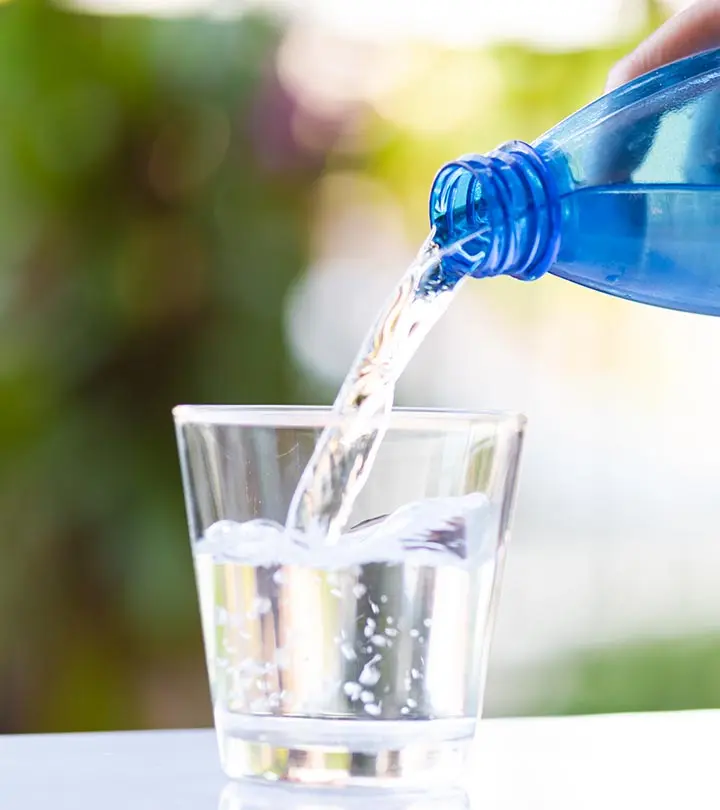
Image: Shutterstock
Mineral water has a rich nutrient composition and is known for its therapeutic value. It is obtained from natural springs and underground reservoirs.
The presence of sodium, calcium, magnesium, and potassium minerals plays a key role in mineral water’s benefits (1). And drinking mineral water comes with a multitude of unexpected health benefits.
It helps lower blood pressure, promotes bone health, improves digestive health, and may improve heart health.
In this article, we have discussed the difference between mineral water and regular water, the health benefits of mineral water, and possible side effects. Keep reading!
 Know Your Ingredient: Mineral Water
Know Your Ingredient: Mineral WaterWhat Is It?
Clear tasteless drinking water with added nutrients like magnesium, calcium, bicarbonate, sodium, sulfate, chloride, and fluoride.
What Are Its Benefits?
It lowers bad cholesterol, improves nerve function, manages blood pressure, and detoxifies the body.
Who Can Consume It?
It is safe for general consumption.
How Often?
It can be had every day.
Caution
Mineral water is generally safe but adverse impacts may arise due to plastic packaging, bloating due to carbonated contents, and teeth yellowing due to high content of minerals.
In This Article
Mineral Water Vs. Regular Water
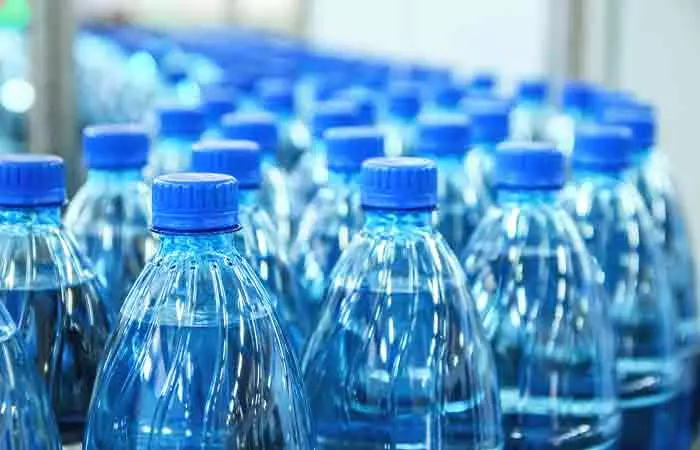
Mineral water is more acidic than tap water and has a sour taste due to the presence of carbonic acid. Both types of water contain minerals and undergo some sort of processing. Based on the current evidence, the differences are not very significant. Here’s what you need to know.
I. Mineral Water
Mineral water contains added minerals (depends on the source) or dissolved substances to alter its taste.
People believe that it has some medicinal properties because of the minerals in it. As per the Food and Drug Administration (FDA), mineral water must contain at least 250 parts per million of total dissolved solids (2).
Minerals and electrolytes that are often present in mineral water include:
- Calcium
- Chlorine
- Phosphorus
- Magnesium
- Potassium
- Sodium
- Sulfur
Listed above are some of the micronutrients that are essential for performing bodily functions such as protein synthesis, bone formation, cartilage formation, etc. (3).
Besides some micronutrients, trace elements are essential for some biological functions such as hormone synthesis, enzyme production, prevention of tooth decay, etc. (3).
- Cobalt
- Iron
- Chromium
- Copper
- Iodine
- Fluorine
Unlike normal tap water, mineral water is usually bottled at the source in plastic or glass bottles. Some people prefer mineral water due to its therapeutic value. However, mineral water may undergo some detoxification processing to remove bacteria or toxic substances (4). Daily intake of mineral water is essential to maintain body water equilibrium (3).
II. Tap Water
Tap water is either neutral or slightly alkaline and is treated with chlorine and delivered to households through pipes and purification systems.
Before reaching households, tap water undergoes a purity process, i.e., chemical disinfection process in the water treatment plant. The clean water then gets delivered through the underground piping system. However, some minerals in the tap water can corrode pipes and pollute drinking water..
In the U.S., tap water must meet the Safe Drinking Water Act standards established by the Environmental Protection Agency (EPA) (5).
 Did You Know?
Did You Know?Now that you know the difference between mineral water and tap water, let’s check out the most important mineral water benefits! Using water for your skin provides more advantages than just hydration.
Key Takeaways
- Mineral water is rich in magnesium, and thus improves the nervous system and controls blood glucose levels and blood pressure.
- Mineral water is rich in calcium, and thus improves bone, dental, and nail health.
- Mineral water improves heart health, the digestive system, and helps control body weight.
- Mineral water fights signs of aging, dark spots, and dullness.
6 Health Benefits Of Mineral Water
1. A Source Of Magnesium
Mineral water is a rich source of magnesium, which plays a major role in regulating bodily functions such as nerve function, controlling blood glucose levels, and regulating blood pressure
(6).
Depending on the source, the amount of magnesium in mineral water may vary. The Recommended Dietary Allowances (RDAs) for magnesium are as follows (6):
- 310-320 mg for adult women
- 350-400 mg for pregnant women
- 310-360 mg for lactating women
- 400-420 mg for adult men
Magnesium deficiency, also known as hypomagnesemia, is prevalent in the general population, at 2.5-15%. Among hospitalized patients, the prevalence increases to 12- 20%, and it is even more common in critically ill patients, with one study estimating it at 65% (7).
Magnesium deficiency may cause symptoms such as anxiety, irritability, fatigue, muscle weakness, tremors, and vertigo. In severe cases, it can also lead to seizures, hearing loss, migraines, osteoporosis, and irregular heartbeat (8).
2. May Help Lower Blood Pressure
Mineral water is a good source of calcium and magnesium (1). Thus, it is said to be beneficial for people with blood pressure issues. Magnesium and calcium deficiencies may contribute to hypertension (9), (10). Both these minerals are actively involved in the electrolytic process of the human brain and body. This electrolytic balance is essential for the maintenance of blood pressure and circulation. It also helps quicken hydration in humans (11).
A study conducted by Göteborg University (Sweden) found that drinking mineral water may help lower blood pressure in people with elevated blood pressure (12).
A study conducted on 70 people with borderline hypertension also found that drinking 1 litre of mineral water per day lowered their blood pressure (12).
However, more studies are required to understand the role of drinking mineral water in blood pressure management.
3. Promotes Bone Health

Calcium is the most important mineral involved in bone development. The calcium present in mineral water is an important source of calcium intake (13). It strengthens bones, teeth, and nails.
A study conducted by the Saxon Balneology and Rehabilitation Medicine Research Institute found that bioavailability of calcium from mineral water is comparable to (and could even be better) than from dairy products (14), (15). Another study conducted on postmenopausal women found that regular intake of calcium-rich mineral water increases the bone mineral density (16).
Furthermore, controlling magnesium homeostasis may help maintain bone integrity (17).
4. Improves Digestive Health
Mineral water contains magnesium sulfate and sodium sulfate that can help improve bowel movement frequency and stool consistency when constipated (18). A study conducted in Japan found that low magnesium intake is associated with constipation (19). Moreover, adequate fluid intake has been shown to improve digestion (20).
5. May Improve Heart Health
A study conducted on postmenopausal women by the Spanish Council for Scientific Research found that sodium bi-carbonate mineral water affects cholesterol and triacylglycerol metabolism after meals (21).
Another study conducted on postmenopausal women found that the intake of carbonated mineral water intake decreases total cholesterol and LDL-cholesterol levels, which reduces the risk of cardiovascular diseases (22). The magnesium levels in drinking water are also said to be inversely associated with coronary heart disease mortality (23).
However, more long-term studies are required to understand how drinking mineral water promotes heart health.
6. May Regulate Body Fat

Mineral water is an essential fat-free supplement that offers a good amount of fat metabolizing minerals. It helps in fat breakdown, which is essential in burning the layers of fat in the body. Thus, drinking mineral water before meals (1.5 l/day) along with a low-calorie diet can help in weight management (24).
Now that you know all about the health benefits of mineral water, let’s check out how it benefits your skin.
Is Mineral Water Good For Your Skin And Face?

Mineral water may be a refreshing source of skin-friendly silica particles. Silica is great for the skin. It triggers the production of collagen in your skin. Increased collagen formation reduces wrinkles, dark spots, and dullness. Furthermore, silica deficiency leads to skin ageing (25). Hence, mineral water may be a good source of skin health.
However, more long-term studies are required to understand this benefit of mineral water.
Though mineral water is generally safe for consumption, it does have a few side effects that you need to keep in mind. Check them out in the next section.
What Are The Side Effects Of Mineral Water?
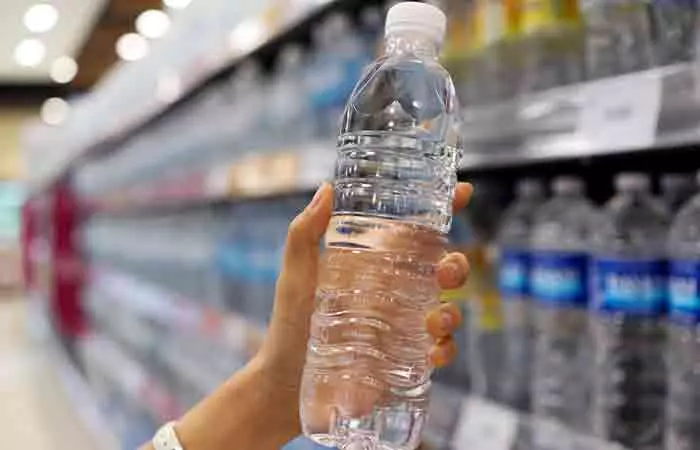
Mineral water is generally regarded as safe to drink. However, too much consumption of mineral water has some side effects, and very little research has been done in this area.
Many studies focused on bottled mineral water are about the migration of chemicals from plastic bottles to water (26). A study conducted on mice found that microplastics consumed through water can accumulate in the body and cause inflammation (27).
The carbonic acid present in carbonated mineral water can cause bloating (28). Mineral water contains fewer microbes when compared to normal tap water. Thus, it does not undergo the disinfection process (unlike tap water) and contains microbes. It is also sometimes enriched with carbon dioxide (29).
Plastic Toxicity
Microplastics are tiny particles with potential health concerns. Plastic bottles contain bisphenol A (BPA) that are said to interfere with the hormonal function in your body. These particles are also found in seafood products, beverages like beer, and table salt.
Though the microplastics in bottled water do not raise a safety concern, more research is required in this area (30).
Carbonated Water Damages Teeth
Sparkling mineral water can damage the enamel on your teeth. A study conducted by the University of Birmingham found that sparkling mineral water damages tooth enamel more than regular tap water but less than soft drinks (31).
Carbonated water is more acidic than regular tap water. A study conducted in Korea found that carbonated water manufactured by a soda carbonator reduces enamel hardness (32). But, it has a smaller impact on teeth than drinking soda (33).
Environmental Concerns
Pollution caused by plastic water bottles is a serious threat to the environment. But, scientists have found that treating tap water with domestic reverse osmosis equipment is the most environmentally friendly way to treat water (34). As bottle manufacturing requires more energy and raw material inputs, especially in the case of glass water bottles, regular water treatment is the most favourable option.
 Quick Tip
Quick TipPeople are often confused between mineral water and sparkling water due to their similar appearance. However, there are fundamental differences between the two. Check out the next section to find out.
Mineral Water Vs. Sparkling Water
Though they are both carbonated, they differ in their origin and characteristics. Mineral water comes from natural underground reservoirs and contains minerals such as calcium and magnesium. It is naturally carbonated as it contains dissolved carbon dioxide gas with different carbonation levels.
On the other hand, sparkling water is plain water to which carbon dioxide gas is artificially added. It has a bubbly texture and is often used as a base for flavored sodas or mixed drinks. The key difference is that mineral water derives its unique characteristics from naturally-occurring minerals, whereas sparkling water achieves its fizziness through carbonation.
Infographic: All About Mineral Water
Mineral water is packed with the goodness of different minerals from underground reservoirs and natural springs. It has an edge over regular tap water and can provide many health benefits.
Go through the infographic below to learn more about mineral water’s global appeal, its varieties, and how you can use it to enhance your wellness.
Some thing wrong with infographic shortcode. please verify shortcode syntax
Mineral water benefits you in multiple ways. It contains magnesium, which exhibits a positive effect on nerve function and blood glucose levels. The calcium and magnesium in mineral water help lower blood pressure. Mineral water promotes bone health by supporting bone development, and the calcium in it strengthens bones, teeth, and nails. The magnesium sulfate and sodium sulfate in mineral water help relieve constipation, while its silica particles promote skin health. However, excess intake of mineral water may cause bloating and tooth damage. Hence, caution is advised.
Frequently Asked Questions
Is mineral water good for kidneys?
Yes, mineral water is good for kidneys. The minerals and vitamins it contains may reduce the risk of kidney stones. However, more research is needed in this regard.
Is mineral water good for your liver?
Yes, mineral water is good for the liver. The minerals it contains may help promote liver health and reduce the risk of liver diseases.
Does mineral water improve memory?
Anecdotal evidence suggests that the consumption of mineral water may increase oxygen and blood flow to the brain, which enhances cognitive functions and improves memory.
Which is better, tap water or mineral water?
While both are safe for consumption, mineral water is considered healthier due to its high mineral content, rich nutrient composition, and overall health benefits. You can make mineral water at home by adding essential minerals, such as baking soda and epsom salt, to distilled water.
Illustration: Potential Benefits Of Mineral Water For The Skin And Health
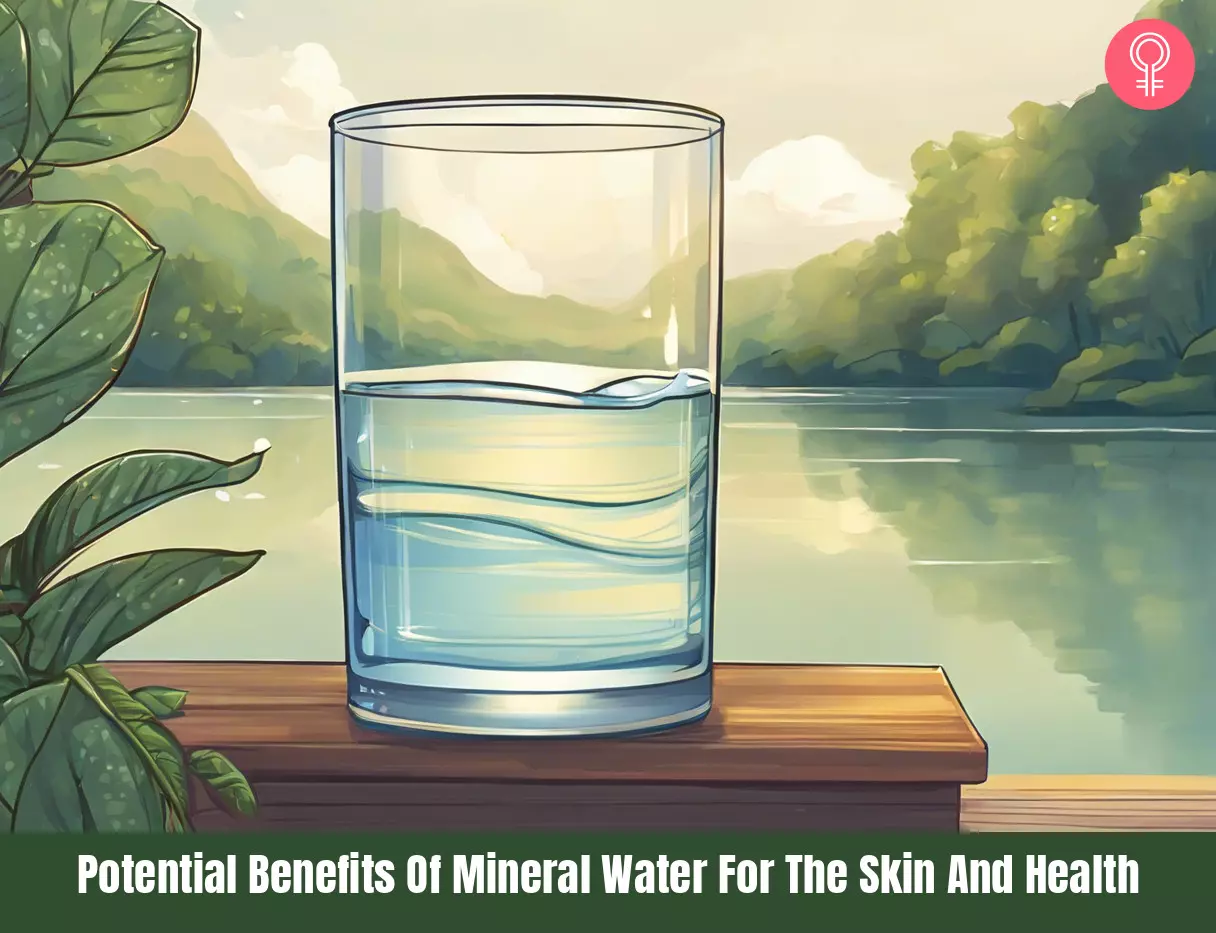
Image: Stable Diffusion/StyleCraze Design Team
References
Articles on StyleCraze are backed by verified information from peer-reviewed and academic research papers, reputed organizations, research institutions, and medical associations to ensure accuracy and relevance. Read our editorial policy to learn more.
- “FoodData Central Search Results.” FoodData Central, fdc.nal.usda.gov/fdc-app.html#/food-details/496247/nutrients.
https://fdc.nal.usda.gov/fdc-app.html#/food-details/496247/nutrients - Commissioner, Office of the. “Bottled Water Everywhere: Keeping It Safe.” U.S. Food and Drug Administration, FDA.
www.fda.gov/consumers/consumer-updates/bottled-water-everywhere-keeping-it-safe. - Quattrini, Sara et al. “Natural mineral waters: chemical characteristics and health effects.” Clinical cases in mineral and bone metabolism : the official journal of the Italian Society of Osteoporosis, Mineral Metabolism, and Skeletal Diseases vol. 13,3 (2016): 173-180. doi:10.11138/ccmbm/2016.13.3.173
https://www.ncbi.nlm.nih.gov/pmc/articles/PMC5318167/ - Joseph, Nitin et al. “Bacteriological Assessment of Bottled Drinking Water Available at Major Transit Places in Mangalore City of South India.” Journal of environmental and public health vol. 2018 7472097. 25 Oct. 2018, doi:10.1155/2018/7472097
https://www.ncbi.nlm.nih.gov/pmc/articles/PMC6222228/ - “Summary of the Safe Drinking Water Act.” EPA, Environmental Protection Agency, 4 Feb. 2025.
www.epa.gov/laws-regulations/summary-safe-drinking-water-act. - “Office of Dietary Supplements – Magnesium.” NIH Office of Dietary Supplements, U.S. Department of Health and Human Services.
https://ods.od.nih.gov/factsheets/Magnesium-HealthProfessional/ - Alin Gragossian, Khalid Bashir, et al. “Hypomagnesemia” StatPearls Publishing, 2025 Jan
https://www.ncbi.nlm.nih.gov/books/NBK500003/ - DiNicolantonio, James J et al. “Subclinical magnesium deficiency: a principal driver of cardiovascular disease and a public health crisis.” Open heartvol. 5,1 e000668. 13 Jan. 2018, doi:10.1136/openhrt-2017-000668
https://www.ncbi.nlm.nih.gov/pmc/articles/PMC5786912/ - van Mierlo LA, Arends LR, Streppel MT, et al. Blood pressure response to calcium supplementation: a meta-analysis of randomized controlled trials. J Hum Hypertens. 2006;20(8):571–580. doi:10.1038/sj.jhh.1002038
https://pubmed.ncbi.nlm.nih.gov/16673011// - Laurant P, Hayoz D, Brunner HR, Berthelot A. Effect of magnesium deficiency on blood pressure and mechanical properties of rat carotid artery. Hypertension. 1999;33(5):1105–1110. doi:10.1161/01.hyp.33.5.1105
https://pubmed.ncbi.nlm.nih.gov/10334795// - Naser, Abu Mohd et al. “Drinking Water Salinity, Urinary Macro-Mineral Excretions, and Blood Pressure in the Southwest Coastal Population of Bangladesh.”Journal of the American Heart Association vol. 8,9 (2019): e012007. doi:10.1161/JAHA.119.012007
https://www.ncbi.nlm.nih.gov/pmc/articles/PMC6512114/ - Rylander, Ragnar, and Maurice J Arnaud. “Mineral water intake reduces blood pressure among subjects with low urinary magnesium and calcium levels.” BMC public health vol. 4 56. 30 Nov. 2004, doi:10.1186/1471-2458-4-56
https://www.ncbi.nlm.nih.gov/pmc/articles/PMC535900/ - Vannucci L, Fossi C, Quattrini S, et al. Calcium Intake in Bone Health: A Focus on Calcium-Rich Mineral Waters. Nutrients. 2018;10(12):1930. Published 2018 Dec 5. doi:10.3390/nu10121930
https://pubmed.ncbi.nlm.nih.gov/30563174// - Bohmer H, Müller H, Resch KL. Calcium supplementation with calcium-rich mineral waters: a systematic review and meta-analysis of its bioavailability. Osteoporos Int. 2000;11(11):938–943. doi:10.1007/s001980070032
https://pubmed.ncbi.nlm.nih.gov/11193246// - Heaney RP. Absorbability and utility of calcium in mineral waters. Am J Clin Nutr. 2006;84(2):371–374. doi:10.1093/ajcn/84.1.371
https://pubmed.ncbi.nlm.nih.gov/16895885// - Orchard, Tonya S et al. “Magnesium intake, bone mineral density, and fractures: results from the Women’s Health Initiative Observational Study.” The American journal of clinical nutrition vol. 99,4 (2014): 926-33. doi:10.3945/ajcn.113.067488
https://www.ncbi.nlm.nih.gov/pmc/articles/PMC3953885/ - Castiglioni, Sara et al. “Magnesium and osteoporosis: current state of knowledge and future research directions.”Nutrients vol. 5,8 3022-33. 31 Jul. 2013, doi:10.3390/nu5083022
https://www.ncbi.nlm.nih.gov/pmc/articles/PMC3775240/ - Bothe G, Coh A, Auinger A. Efficacy and safety of a natural mineral water rich in magnesium and sulphate for bowel function: a double-blind, randomized, placebo-controlled study. Eur J Nutr. 2017;56(2):491–499. doi:10.1007/s00394-015-1094-8
https://pubmed.ncbi.nlm.nih.gov/26582579// - Murakami K, Sasaki S, Okubo H, et al. Association between dietary fiber, water and magnesium intake and functional constipation among young Japanese women. Eur J Clin Nutr. 2007;61(5):616–622. doi:10.1038/sj.ejcn.1602573
https://pubmed.ncbi.nlm.nih.gov/17151587// - Popkin, Barry M et al. “Water, hydration, and health.” Nutrition reviews vol. 68,8 (2010): 439-58. doi:10.1111/j.1753-4887.2010.00304.x
https://www.ncbi.nlm.nih.gov/pmc/articles/PMC2908954/ - Schoppen S, Pérez-Granados AM, Carbajal A, et al. Sodium bicarbonated mineral water decreases postprandial lipaemia in postmenopausal women compared to a low mineral water.Br J Nutr. 2005;94(4):582–587. doi:10.1079/bjn20051515
https://pubmed.ncbi.nlm.nih.gov/16197584// - Schoppen S, Pérez-Granados AM, Carbajal A, et al. A sodium-rich carbonated mineral water reduces cardiovascular risk in postmenopausal women. J Nutr. 2004;134(5):1058–1063. doi:10.1093/jn/134.5.1058
https://pubmed.ncbi.nlm.nih.gov/15113945// - Jiang L, He P, Chen J, et al. Magnesium Levels in Drinking Water and Coronary Heart Disease Mortality Risk: A Meta-Analysis. Nutrients. 2016;8(1):5. Published 2016 Jan 2. doi:10.3390/nu8010005
https://pubmed.ncbi.nlm.nih.gov/26729158/ - Dennis, Elizabeth A et al. “Water consumption increases weight loss during a hypocaloric diet intervention in middle-aged and older adults.” Obesity (Silver Spring, Md.) vol. 18,2 (2010): 300-7. doi:10.1038/oby.2009.235
https://www.ncbi.nlm.nih.gov/pmc/articles/PMC2859815/ - Jurkić, Lela Munjas et al. “Biological and therapeutic effects of ortho-silicic acid and some ortho-silicic acid-releasing compounds: New perspectives for therapy.” Nutrition & metabolism vol. 10,1 2. 8 Jan. 2013, doi:10.1186/1743-7075-10-2
https://www.ncbi.nlm.nih.gov/pmc/articles/PMC3546016/ - Chemical migration in drinking water stored in polyethylene terephthalate (PET) bottles: a source of controversy, ReserachGate.
https://www.researchgate.net/publication/267802778_Chemical_migration_in_drinking_water_stored_in_polyethylene_terephthalate_PET_bottles_a_source_of_controversy - Deng Y, Zhang Y, Lemos B, Ren H. Tissue accumulation of microplastics in mice and biomarker responses suggest widespread health risks of exposure. Sci Rep. 2017;7:46687. Published 2017 Apr 24. doi:10.1038/srep46687
https://pubmed.ncbi.nlm.nih.gov/28436478// - Cormier RE. Abdominal Gas. In: Walker HK, Hall WD, Hurst JW, editors. Clinical Methods: The History, Physical, and Laboratory Examinations. 3rd edition. Boston: Butterworths; 1990. Chapter 90. Available from:
https://www.ncbi.nlm.nih.gov/books/NBK417/ - De Giglio O, Quaranta A, Lovero G, Caggiano G, Montagna MT. Mineral water or tap water? An endless debate. Ann Ig. 2015;27(1):58–65. doi:10.7416/ai.2015.2025
https://pubmed.ncbi.nlm.nih.gov/25748506// - Welle, Frank, and Roland Franz. “Microplastic in bottled natural mineral water–literature review and considerations on exposure and risk assessment.” Food Additives & Contaminants: Part A 35.12 (2018): 2482-2492.
https://www.tandfonline.com/doi/abs/10.1080/19440049.2018.1543957?journalCode=tfac20 - Parry J, Shaw L, Arnaud MJ, Smith AJ. Investigation of mineral waters and soft drinks in relation to dental erosion. J Oral Rehabil. 2001;28(8):766–772. doi:10.1046/j.1365-2842.2001.00795.x
https://pubmed.ncbi.nlm.nih.gov/11556958// - Ryu, Hyo-Kyung et al. “Effect of carbonated water manufactured by a soda carbonator on etched or sealed enamel.” Korean journal of orthodontics vol. 48,1 (2018): 48-56. doi:10.4041/kjod.2018.48.1.48
https://www.ncbi.nlm.nih.gov/pmc/articles/PMC5702778/ - Kim, Sang-Kyeom, et al. “Assessment of the erosive potential of carbonated waters.”Journal of Korean Academy of Oral Health 39.4 (2015): 273-279.
https://synapse.koreamed.org/articles/1057661 - Garfí, Marianna, et al. “Life cycle assessment of drinking water: comparing conventional water treatment, reverse osmosis and mineral water in glass and plastic bottles.”Journal of cleaner production 137 (2016): 997-1003.
https://www.sciencedirect.com/science/article/pii/S0959652616311234
Read full bio of Nilofar Pendhari
Read full bio of Sindhu Koganti
Read full bio of Ravi Teja Tadimalla
Read full bio of Himanshi Mahajan






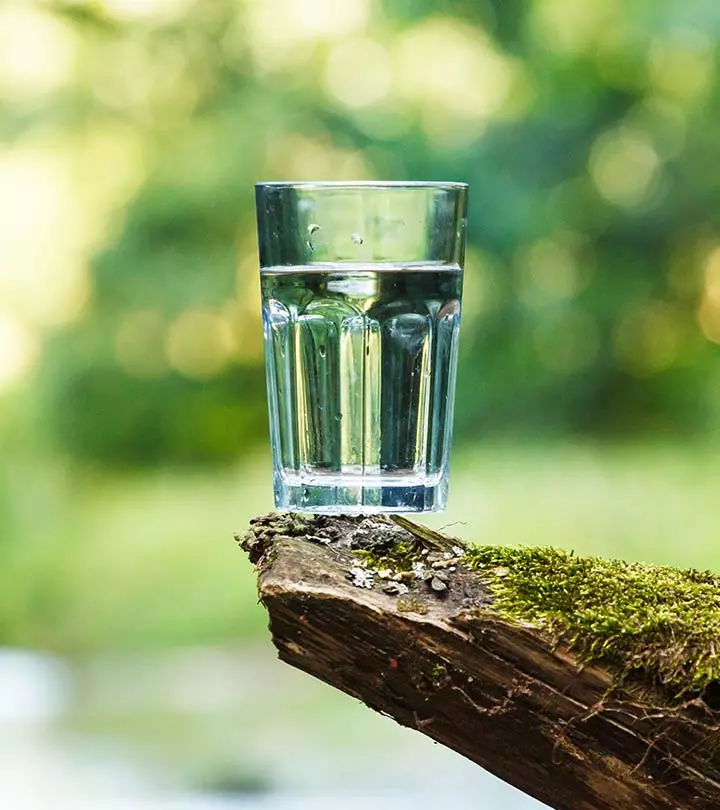
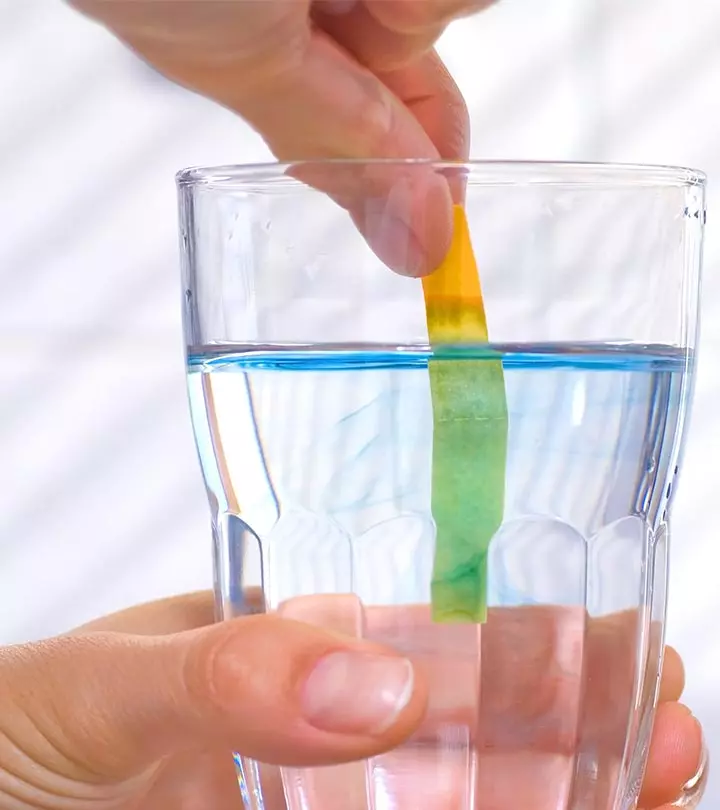
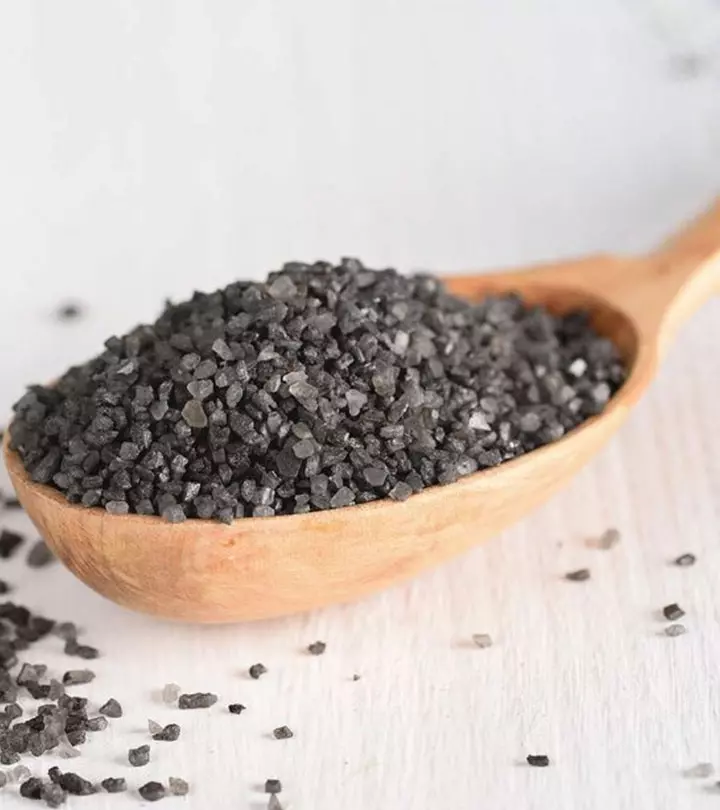
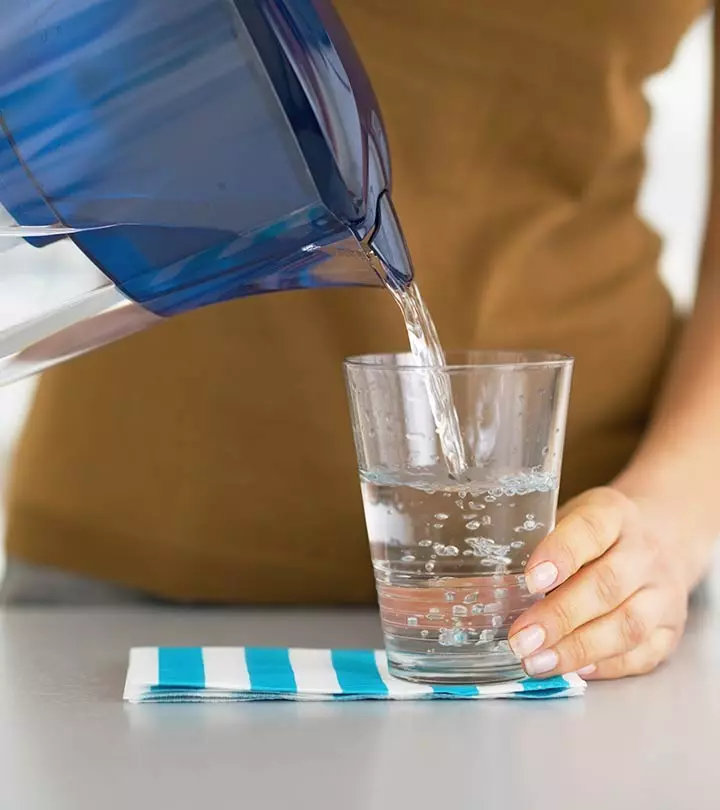
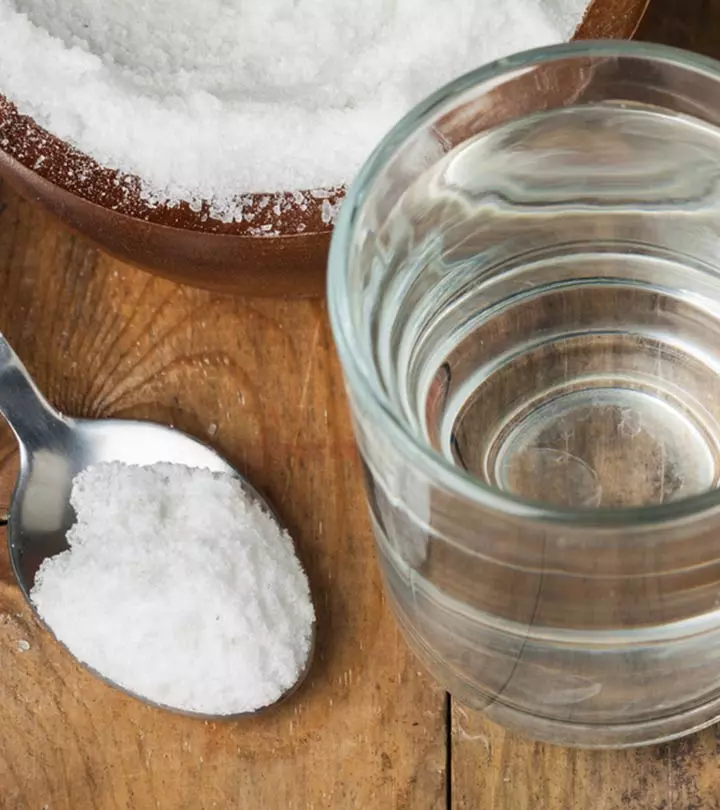


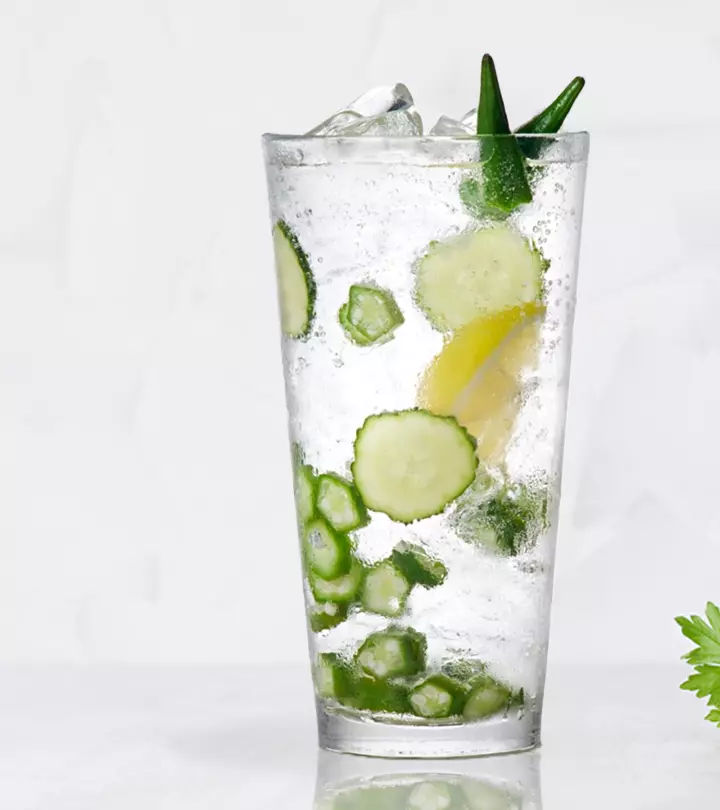


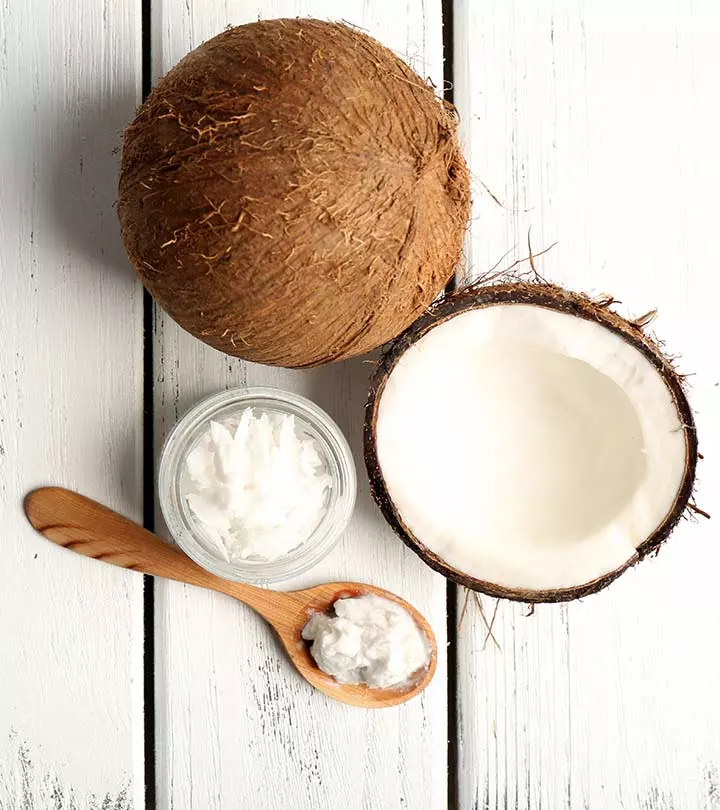






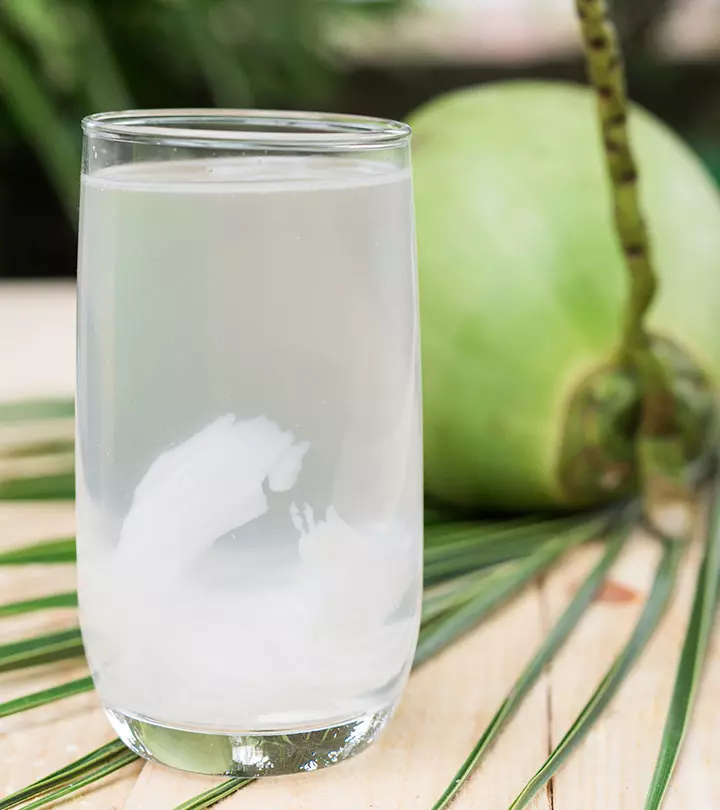


Community Experiences
Join the conversation and become a part of our empowering community! Share your stories, experiences, and insights to connect with other beauty, lifestyle, and health enthusiasts.